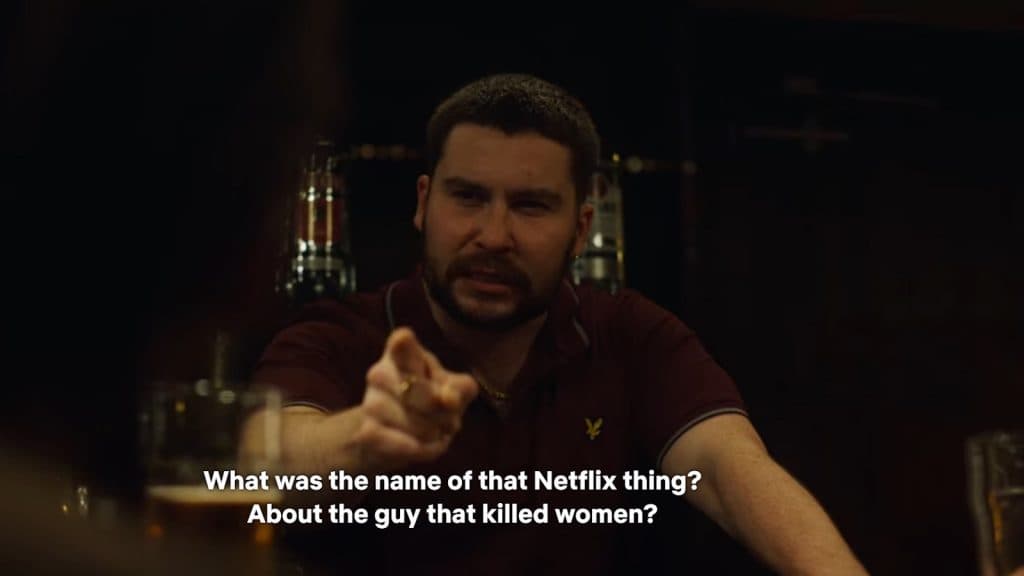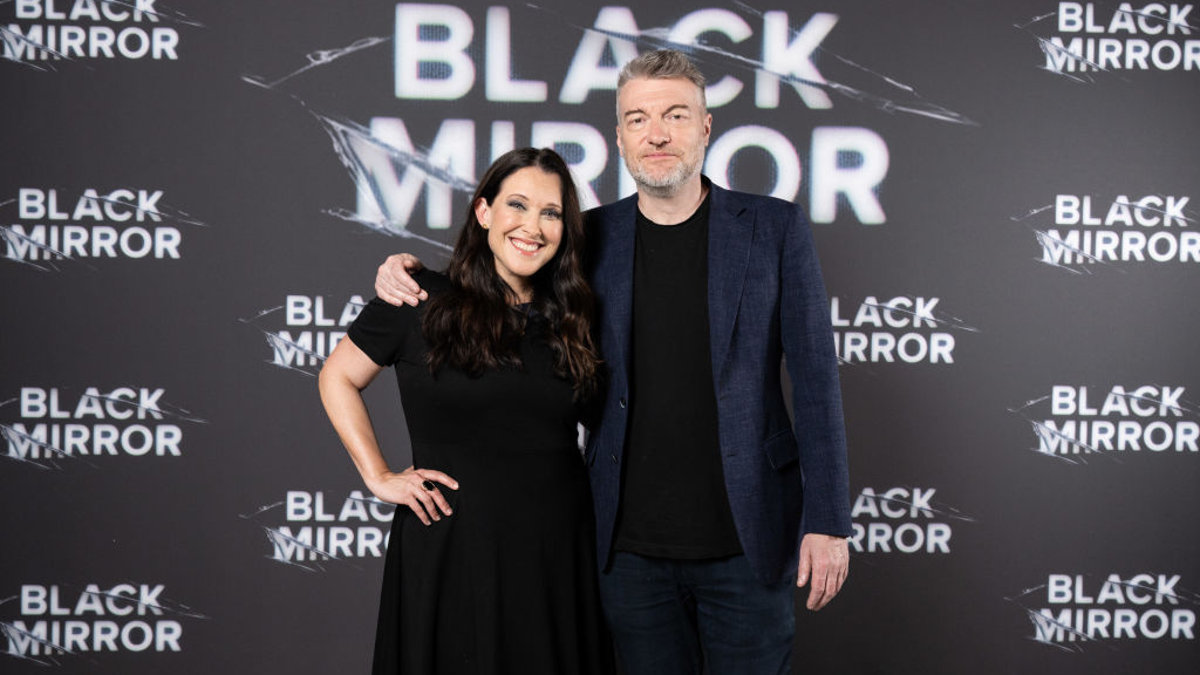Does the digital mirror we hold up to ourselves ever truly reflect reality, or is it a distorted funhouse, especially when fame and scrutiny collide? The exploration of celebrity culture, the ravenous appetite of paparazzi, and the blurred lines between truth and fiction within the entertainment industry are complex, and often unsettling.
The fictional world, presented in the fourth episode of Netflixs "Black Mirror" season 6, delves into these murky waters. It showcases the volatile relationship between celebrities and the photographers who hound them, offering a narrative that's both captivating and unsettling in its implications. The episode, a sharp commentary on fame, obsession, and the price of privacy, features characters, and situations that mirror our own world in unnerving ways. It introduces a fictional narrative that probes the depths of celebrity culture, and the often-toxic relationship between those in the public eye and those who document them. The use of a fictional streaming service called "Streamberry," a clear stand-in for Netflix, and the fictional show "Joan is Awful" add layers of meta-commentary, raising questions about the nature of reality and the consumption of media.
| Category | Details |
|---|---|
| Title | "Mazey Day" (Black Mirror, Season 6, Episode 4) |
| Logline | A paparazzi photographer struggles with the moral implications of her work when she gets drawn into the dark and disturbing world of a troubled actress. |
| Main Themes | Celebrity culture, Paparazzi ethics, Mental health, The price of fame, The blurring of reality and fiction |
| Key Characters | Mazey Day (a troubled actress), Bo (a paparazzi photographer), other celebrities. |
| Notable Elements | The episode's focus on the ethical grey areas of paparazzi photography, the exploration of mental health issues within the entertainment industry, the surprising turn of events and the overall unsettling atmosphere. |
| Connection to Real-World | The episode is a commentary on the exploitative nature of celebrity culture, and the pressures of fame. |
| Fictional Streaming Service | Streamberry |
| Synecdoche | The title "Claw" is a synecdoche, a part that represents a whole, mirroring how in Jaws (1975), the title references the shark. |
One of the more intriguing elements within the episode is the subtle referencing of other fictional narratives within the "Black Mirror" universe. A character casually mentions a documentary called "The Waltonville Claw," which is described as being about a killer. This seemingly throwaway line is a clever nod to the show's propensity for creating a sense of shared fictional reality. The fact that this killer, in the documentary, apparently ate the victim's eyes underscores the dark tone that often permeates the show.
The concept of the Claw also invites comparisons to other horror-themed narratives and documentaries, thus adding layers of complexity to this episode of "Black Mirror." The reference to "The Waltonville Claw" works in multiple ways. It serves as a quick-fire hint to the audience, immediately aligning the episode with horror tropes. It underscores the grim nature of the episode's universe, while also reflecting the shows own dark humor. It creates the illusion of a larger, interconnected story. It also serves as a meta-commentary on our cultures obsession with true crime and sensationalized media. It hints at the darker side of human nature, which "Black Mirror" is known for dissecting. Through this simple reference, the show efficiently builds a sense of dread, setting the stage for the unsettling events.
The episode's narrative structure draws the viewers in and keeps them guessing. The use of the "Streamberry" as a stand-in for "Netflix" in the show "Joan is Awful," which itself has multiple layers, further blurs the lines. This recursive storytelling raises questions about the boundaries between reality and fiction within the fictional universe itself. The viewer is left to ponder the degree to which the characters and events of the show mirror our own world.
The show uses the framework of Black Mirror to explore the darker side of human nature, the lengths to which people will go for fame, and the devastating effects of unchecked exploitation. "Black Mirror" consistently delves into the complexities of human behavior and the potential consequences of technological advancement and social pressures. The episode underscores the moral dilemmas faced by those operating within the entertainment industry. It highlights the often-blurred lines between right and wrong, especially in the face of financial gain. It suggests that celebrity culture can often become a predatory environment, where privacy is a commodity. The narrative challenges viewers to question their own consumption of media and their roles in perpetuating the cycles of fame and obsession.
The fourth episode of "Black Mirror" Season 6 features a cast that brings the story to life. Although the actors portraying the main characters are not mentioned here, the performances are critical to the episodes effectiveness. The episodes success depends on the ability of the actors to portray the emotional turmoil of their characters. The episodes success depends on the ability of the actors to convey the moral quandaries. The performances must capture the intense scrutiny of fame. The actors must also showcase the exploitation of privacy. The effectiveness of the episode depends upon their ability to capture the dark humor, and the commentary on celebrity culture, paparazzi, and the blurred lines between reality and fiction.
The impact of the episode extends beyond the initial viewing experience, provoking thought and discussion. It asks the audience to question their own complicity in a culture that often values sensationalism over human dignity. The episode provides a strong critique of the entertainment industry and its various components. The show is also about our need for connection and validation and how these needs can be distorted by the pressures of fame and social media. The episode effectively uses the conventions of television to reflect on the world around us. The episode asks the audience to grapple with challenging questions about ethics, morality, and the human condition.
The title "Claw" is a synecdoche, a part that represents a whole. The episode itself is a microcosm of celebrity culture. It is a representation of the themes of exploitation, and the dark underbelly of fame. The episode uses the concept of a claw as a symbol of predatory behavior and the destructive power of fame. The narrative, through its characters and plot, emphasizes the dangers of obsessive behavior. This metaphor of the claw also underscores the destructive nature of paparazzi and those who exploit celebrities for profit. By focusing on the synecdoche, "Black Mirror" presents a sharp critique of the cultural obsession with fame and its consequences.
The episode, much like the rest of "Black Mirror," does not provide easy answers. Instead, it prompts viewers to reflect on the complexities of modern life. The episode encourages the audience to critically examine the stories we consume and the systems that produce them. Its a story about the search for truth, the pursuit of autonomy, and the ethical dilemmas inherent in a world obsessed with image and reputation.
The world created in this episode presents a chilling reflection of our reality. Viewers are left to ponder the nature of celebrity, the ethics of media, and the blurring lines of fact and fiction. The episode forces a confrontation with the darker elements of human nature and the ways we consume media. It is a reminder of the ethical considerations surrounding celebrity culture and the effects of fame on the individual.
- Casey Tanner Lgbtq Sex Therapy More News Insights
- Devlan Encryption Secure Tools Insights Learn More


